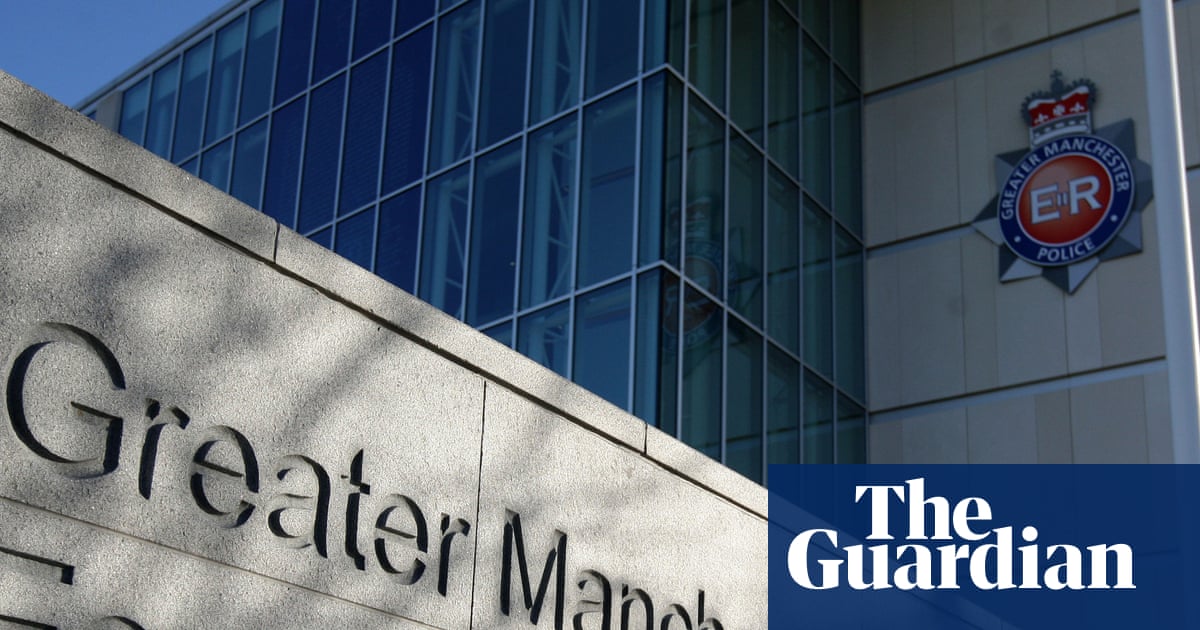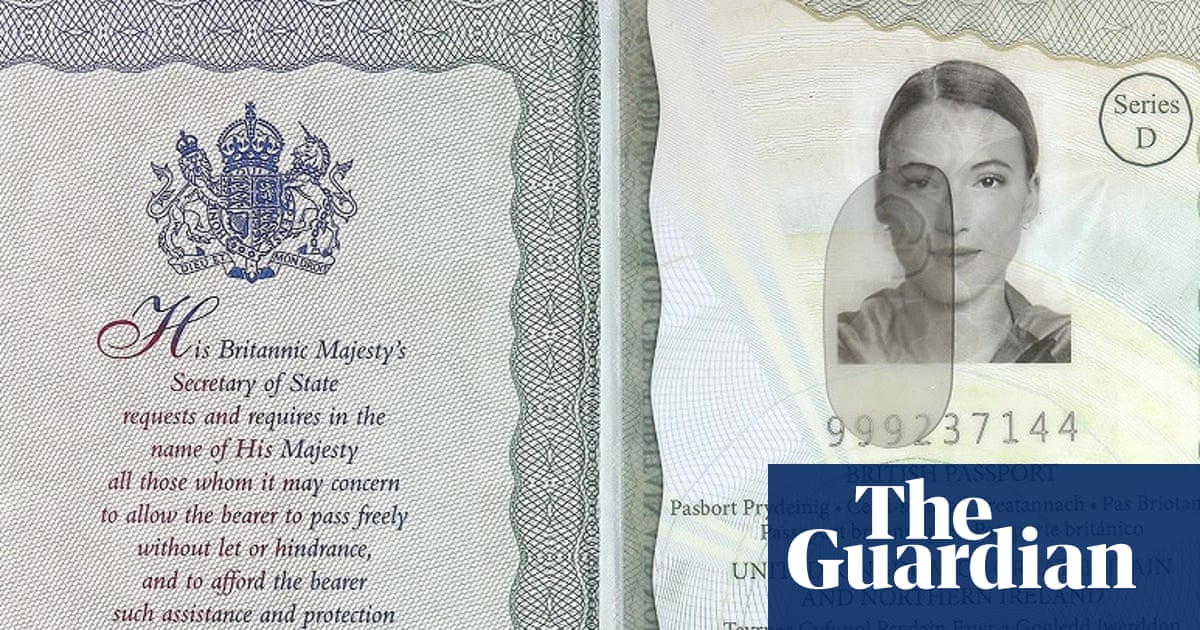Introduction: Reeves to pitch UK as ‘beacon of stability and growth’ at IMF
Good morning, and welcome to our rolling coverage of business, the financial markets and the world economy.
Rachel Reeves is jetting across the Atlantic to pitch the UK as a “beacon of stability” in unstable times.
The UK chancellor is due to meet with senior figures from other G7 countries, and aim to solicit foreign investment from top global firms, as she attends the Annual Meetings of the International Monetary Fund and the World Bank in Washington DC. She’ll also attend a Ukraine roundtable.
Speaking before her arrival, Reeves says:
“Our Plan for Change is delivering national renewal built on the rock of economic stability – the foundation for more security, more respect and more opportunity for every part of the UK.
“In Washington I will showcase Britain’s commitment to fiscal responsibility – while creating the conditions to boost productivity, attract investment and secure our place as a strong and credible partner in a stable global economy.”
Reeves is expected to pitch her fiscal rules as “the bedrock for growth and investment”, and also point to the government’s plans for a National Wealth Fund, and capital spending plans for infrastructure, energy, digital transformation and research.
Yesterday, the IMF raised its forecast for global growth this year, concluding that tariff shocks and financial conditions have proven more benign than expected.
It also released new forecast showing that the UK is likely to suffer the highest inflation in the G7 group of leading economies this year and next, unpalatable news for Reeves and UK consumers alike.
The IMF modestly increased its forecast for economic growth in the UK for this year, from 1.2% to 1.3%, and slightly downgraded it for 2026, also to 1.3%, amid concerns over the labour market.
Bank of England governor Andrew Bailey smeared a little grease on the ‘beacon of stability’ last night, though. He’s also attending the Annual Meetings, and raised concerns about the UK economy running “under potential” and a softening jobs market.
Bailey told an event organised by the Institute of International Finance:
“We’re seeing some softening of the labor market,”
…adding that “that broadly is the story that I pick up” as he travels around the UK.
The agenda
-
10am BST: Bank of England to issue response to the banker bonus deferral consultation
-
1.45pm BST: IMF to release its Fiscal monitor
-
2:15pm Treasury Committee hearing on AI in financial services
Key events Show key events only Please turn on JavaScript to use this feature
Trump threatens China with cooking oil embargo over soybeans
Cooking oil has become the latest front in the US-China trade war.
Last night, President Donald Trump suggested his administration is considering terminating cooking oil purchases from China, in retaliation for Beijing refusing to buy U.S. soybeans.
Posting on his Truth Social site, Trump said:
I believe that China purposefully not buying our Soybeans, and causing difficulty for our Soybean Farmers, is an Economically Hostile Act. We are considering terminating business with China having to do with Cooking Oil, and other elements of Trade, as retribution. As an example, we can easily produce Cooking Oil ourselves, we don’t need to purchase it from China.
US soya bean farmers have warned that China – usually a major customer – has halted orders amid the trade war with Washington.
Another fine! Outsourcing giant Capita has been fined £14m by the Information Commissioner’s Office (ICO) for failing to protect personal data after hackers stole 6.6 million people’s information during a cyber attack in 2023.
The data watchdog said the breach in March 2023 saw the hackers access information including pension details and staff records, as well as details of customers of organisations Capita supports.
In some cases this included sensitive information such as details of criminal records, financial data or so-called special category data, which can include race, religion and sexual orientation.
The ICO fined Capita £8m and a further £6m for Capita Pension Solutions, which processes personal information on behalf of more than 600 groups providing pension schemes, with 325 of these organisations also impacted by the data breach.
John Edwards, UK information commissioner, said:
“Capita failed in its duty to protect the data entrusted to it by millions of people.
“The scale of this breach and its impact could have been prevented had sufficient security measures been in place.”
Royal Mail fined (again) for missing delivery targets
Royal Mail has been fined £21m for missing its delivery targets in the 2024/25 financial year.
The postal operator was penalised by regulator Ofcom for only delivering 77% of First Class mail and 92.5% of Second Class mail on time, well short of its 93% and 98.5% targets.
This is the third year running in which Royal Mail has been fined for delivery target failures – it was billed £5.6m in November 2023 and £10.5m in December 2024.
Announcing today’s fine, an exasperated-sounding Ofcom says Royal Mail must urgently publish – and deliver – a credible improvement plan, or fines are likely to continue.
Ian Strawhorne, director of enforcement at Ofcom, says:
“Millions of important letters are arriving late, and people aren’t getting what they pay for when they buy a stamp. These persistent failures are unacceptable, and customers expect and deserve better.
“Royal Mail must rebuild consumers’ confidence as a matter of urgency. And that means making actual significant improvements, not more empty promises. We’ve told the company to publicly set out how it’s going to deliver this change, and we expect to start seeing meaningful progress soon. If this doesn’t happen, fines are likely to continue.”
Vets could be made to publish prices after UK watchdog investigation

Julia Kollewe
Vets in the UK could be forced to publish their prices and whether they are part of a larger group after an investigation by the markets watchdog into claims chain-owned surgeries have left pet owners with dwindling choice and higher bills.
The Competition and Markets Authority (CMA) found pet owners pay 16.6% more on average at large vet groups than at independent vets and called for a market that is “not fit” for purpose to be modernised.
Publishing its findings on Wednesday of an investigation into how veterinary services operate in Britain, the regulator found that owners were often unaware of the prices of commonly used services and whether their local practices are part of large national chains.
FT: Rachel Reeves revives plans to overhaul cash Isas
The Financial Times are reporting that Reeves is considering reviving plans for a major overhaul of tax-free Isas.
Back in July, the chancellor shelved plans to cut the amount savers can put into tax-efficient cash Isas from £20,000 per year to £5,000, after lobbying from banks, building societies and consumer groups.
According to the FT, the Treasury is now considering halving the annual cash limit, to £10,000 per year, in an attempt to divert tens of billions of pounds of savings from cash into domestic stocks.
Sky: Chancellor admits tax rises and spending cuts considered for budget
Rachel Reeves has told Sky News she is looking at both tax rises and spending cuts in the budget.
When asked how she would deal with the country’s economic challenges in her 26 November statement, the chancellor replied:
“Of course, we’re looking at tax and spending as well.”
Spending cuts could be politically challenging for the government, though, following the revolt over welfare cuts last summer, which is why many economists expect tax rises in the budget.
With forecasts swirling of a black hole of perhaps £20bn in the budget calculations, Reeves also insisted she would stick to her fiscal rules, saying:
“The numbers will always add up with me as chancellor because we saw just three years ago what happens when a government, where the Conservatives, lost control of the public finances: inflation and interest rates went through the roof.”
And asked if she could promise she won’t allow the economy to get stuck in a doom loop cycle, Reeves replied: “Nobody wants that cycle to end more than I do.”
Chancellor Rachel Reeves exclusively tells @SamCoatesSky, 'of course, we're looking at tax and spending as well'.
The Chancellor said she is looking at both tax rises and spending cuts in the budget in her first interview since being briefed on the scale of the black hole. pic.twitter.com/CjxYpFqkfi
Reeves pushed to show 'credibility' on fiscal consolidation

Heather Stewart
Rachel Reeves may also face pressure to show a credible tax and spending plan in November’s budget, and measures to improve productivity, during her visit to Washington.
Yesterday, at a press conference about the outlook for global financial stability, IMF expert Antansios Vamvakidis warned:
“clearly markets are concerned about the UK economy, and we have seen more volatility in the UK compared to other advanced economies.”
Pointing to above-target inflation and weak productivity, he said:
“the market is asking for more details on the fiscal plans in the UK: so yields, as a result, are higher in the UK compared to other advanced economies.”
With Rachel Reeves currently drawing up her budget for 26 November, Vamvakidis added that the IMF recommends the government show, “credibility on the fiscal consolidation plan, and reforms to increase productivity.”
Introduction: Reeves to pitch UK as ‘beacon of stability and growth’ at IMF
Good morning, and welcome to our rolling coverage of business, the financial markets and the world economy.
Rachel Reeves is jetting across the Atlantic to pitch the UK as a “beacon of stability” in unstable times.
The UK chancellor is due to meet with senior figures from other G7 countries, and aim to solicit foreign investment from top global firms, as she attends the Annual Meetings of the International Monetary Fund and the World Bank in Washington DC. She’ll also attend a Ukraine roundtable.
Speaking before her arrival, Reeves says:
“Our Plan for Change is delivering national renewal built on the rock of economic stability – the foundation for more security, more respect and more opportunity for every part of the UK.
“In Washington I will showcase Britain’s commitment to fiscal responsibility – while creating the conditions to boost productivity, attract investment and secure our place as a strong and credible partner in a stable global economy.”
Reeves is expected to pitch her fiscal rules as “the bedrock for growth and investment”, and also point to the government’s plans for a National Wealth Fund, and capital spending plans for infrastructure, energy, digital transformation and research.
Yesterday, the IMF raised its forecast for global growth this year, concluding that tariff shocks and financial conditions have proven more benign than expected.
It also released new forecast showing that the UK is likely to suffer the highest inflation in the G7 group of leading economies this year and next, unpalatable news for Reeves and UK consumers alike.
The IMF modestly increased its forecast for economic growth in the UK for this year, from 1.2% to 1.3%, and slightly downgraded it for 2026, also to 1.3%, amid concerns over the labour market.
Bank of England governor Andrew Bailey smeared a little grease on the ‘beacon of stability’ last night, though. He’s also attending the Annual Meetings, and raised concerns about the UK economy running “under potential” and a softening jobs market.
Bailey told an event organised by the Institute of International Finance:
“We’re seeing some softening of the labor market,”
…adding that “that broadly is the story that I pick up” as he travels around the UK.
The agenda
-
10am BST: Bank of England to issue response to the banker bonus deferral consultation
-
1.45pm BST: IMF to release its Fiscal monitor
-
2:15pm Treasury Committee hearing on AI in financial services

 2 months ago
57
2 months ago
57

















































